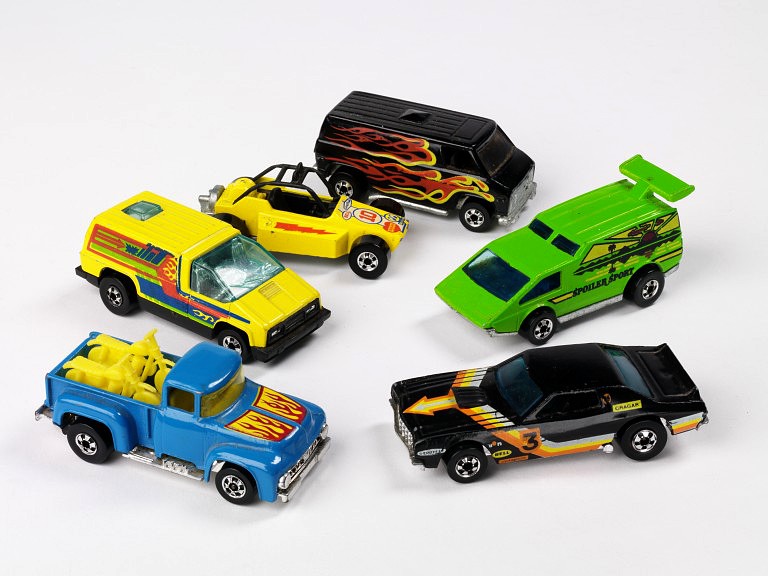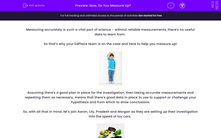Measuring accurately is such a vital part of science - without reliable measurements, there's no useful data to learn from.
So that's why your EdPlace team is on the case and here to help you measure up!

Assuming there's a good plan in place for the investigation, then taking accurate measurements and repeating them as necessary, means that there's good data in place to use to support or challenge your hypothesis, and from which to draw conclusions.
So, with all that in mind, let's join Aaron, Lily, Pradesh and Morgan as they are setting up their investigation into the speed of toy cars.

They have each chosen a toy vehicle and predicted whose will be fastest and slowest.
They have set up a track to run the cars down and set up their data logger to measure the speed of the cars.
What will happen next?








